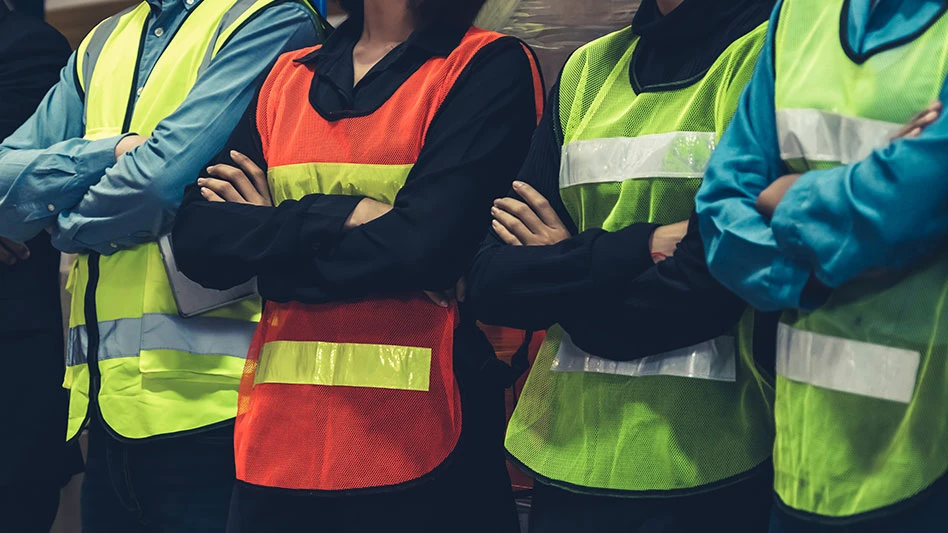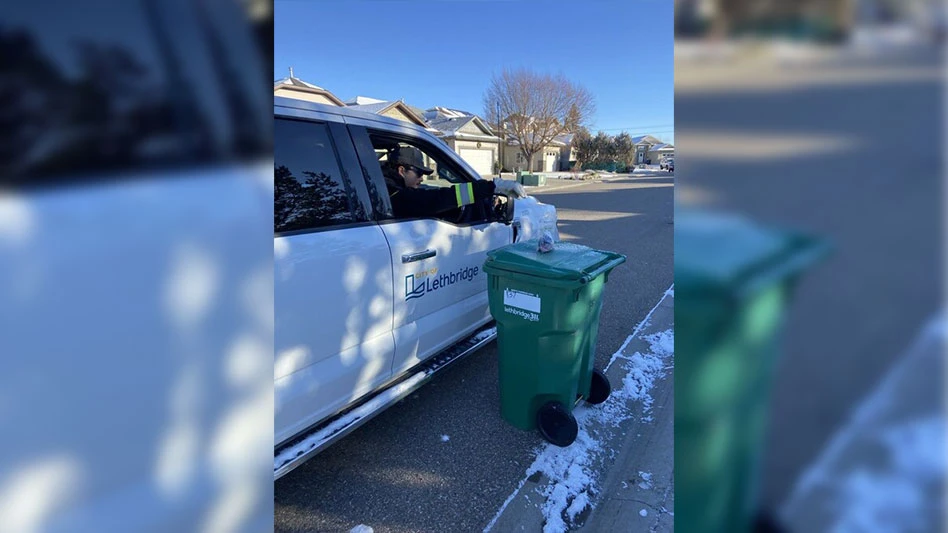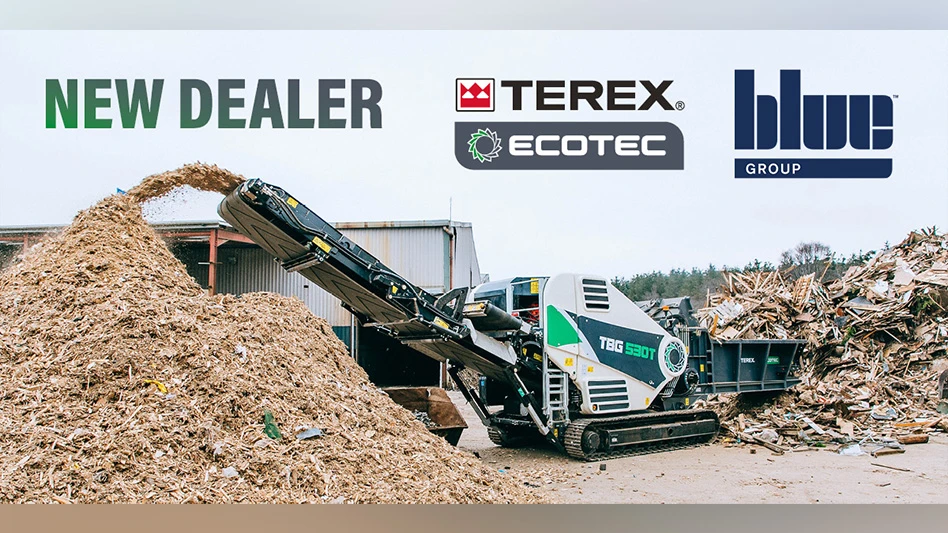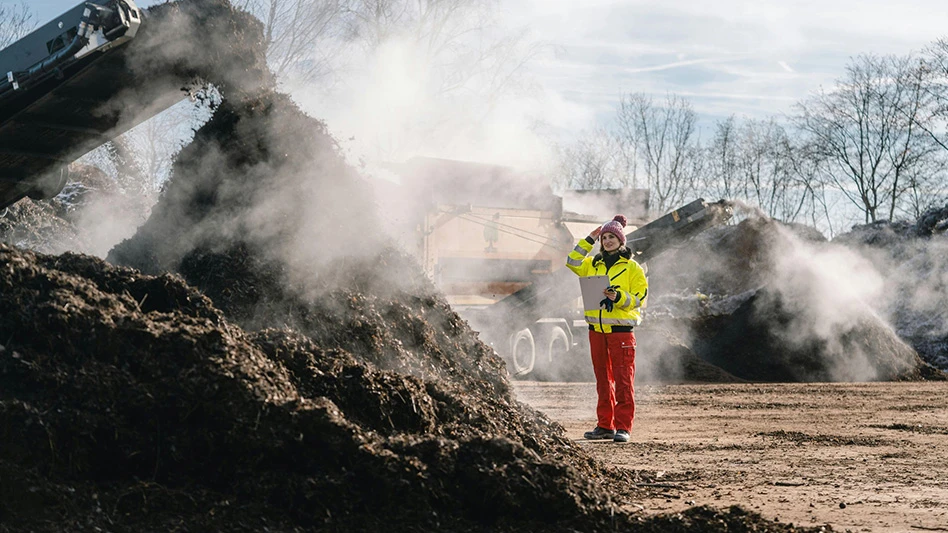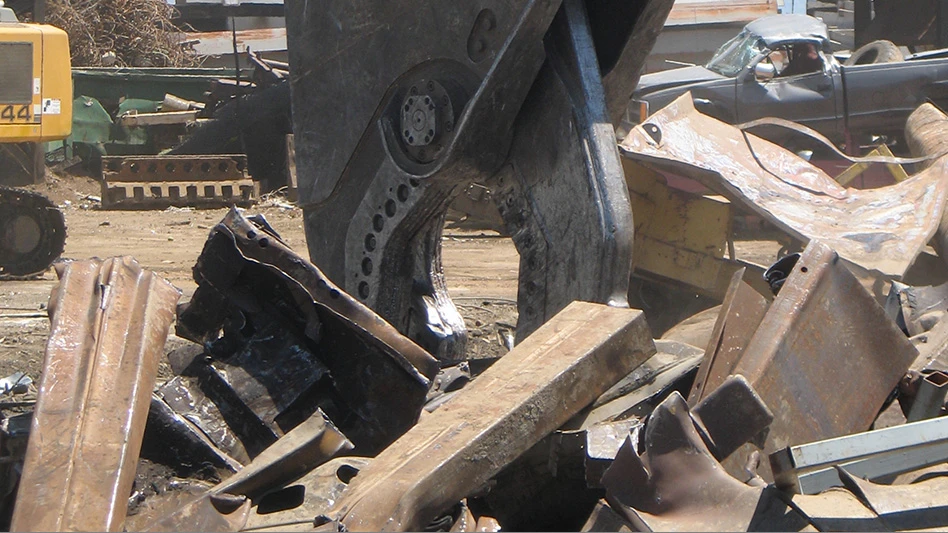
Chart courtesy of Independent Commodity Intelligence Services (ICIS)
The spread between European 90 percent mixed polyolefin bale values and monomaterial polyolefin bale values is at its lowest on record. This is with the exception of low-density polyethylene (LDPE) postcommercial flexible bales, where the spread has been at its narrowest since January.
The value of 90 percent mixed polyolefin bales is at 50 euros per metric ton on average below that of monomaterial high-density polyethylene mixed-colored bales, 75 euros per metric ton on average below postconsumer polypropylene (PP) bales and 100 euros per metric ton on average below black postindustrial PP bales and natural LDPE flexible postcommercial 98/2 bales.
In addition, there was talk in recycled polyolefin markets as of the week of Sept. 5 that players are starting to restrict activity to core markets. This is amid high energy costs, macroeconomic weakness, substitution to virgin and narrowing margins for nonpackaging markets such as construction and automotive.
Meanwhile, downstream spot recycled mixed polyolefin pellet prices—typically used by nonpackaging mechanical recycling applications such as construction—were heard as low as 760 euros per metric ton ex-works northwest Europe as of the week of Sept. 5.
Despite these factors, players are not currently seeing downward pressure on 90 percent mixed polyolefin values. This was, in part, attributed to low availability and partly attributed to pyrolysis-based chemical recyclers absorbing demand loss from mechanical recycling, as pilot plants continue to scale up. The onboarding of pyrolysis-based chemical recycling is expected to further tighten availability.
The 90 percent mixed polyolefin merchant market availability has narrowed throughout the year as waste managers have increasingly onboarded capacity to reprocess material captively.
Most of the chemical recycling market remains precommercial. Although volumes are expected to increase significantly in 2023 and 2024, most expect it to take at least five years for the market to reach scale.
Multiple market players have voiced concern in recent months that waste availability in Europe remains insufficient to cover future volume needs from the chemical recycling industry in 2023 and 2024. Although chemical recycling can take waste fractions that are not possible to mechanically recycle, there are still a number of technical requirements for waste input.
Pyrolysis, for example, typically requires the minimization of chlorine content (typically to 0.1 percent or less) due to its corrosive effect. In addition, it requires the removal of polyethylene terephthalate because it oxygenates the process and does not depolymerize using pyrolysis. It also requires the avoidance of nylon and flame retardants.
Coupled with this, the ongoing lack of clarity over chemical recycling’s legal status continues to concern industry players and, along with access to waste, remains one of the key risk factors to industry growth.
Current European Union regulations typically use the definition of recycling set out in Directive 2008/98/EC in which recycling is any recovery operation by which waste materials are reprocessed into products, materials or substances whether for the original or other purposes. It includes the reprocessing of organic material but does not include energy recovery and the reprocessing into materials that are to be used as fuels or for backfilling operations.
This leaves the regulatory status of chemical recycling under the proposals uncertain.
This analysis was contributed on behalf of the London-based Independent Commodity Intelligence Services (ICIS). The author is a senior recycling editor at ICIS.
Latest from Recycling Today
- Phoenix Technologies closes Ohio rPET facility
- EPA selects 2 governments in Pennsylvania to receive recycling, waste grants
- NWRA Florida Chapter announces 2025 Legislative Champion Awards
- Goldman Sachs Research: Copper prices to decline in 2026
- Tomra opens London RVM showroom
- Ball Corp. makes European investment
- Harbor Logistics adds business development executive
- Emerald Packaging replaces more than 1M pounds of virgin plastic
